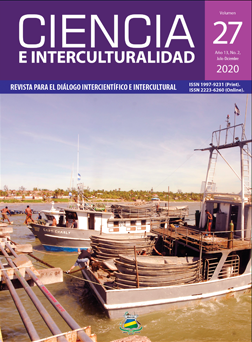Languages Insurgency and Indigenous Identity in Education Systems: A perspective from a developing country
DOI:
https://doi.org/10.5377/rci.v27i02.10431Keywords:
Social Communication, Development, Education, Interculturality, Kichwa LanguageAbstract
The results obtained when investigating intercultural educommunicative programs are presented from the importance for the transformation of learning. Participation and collaboration strategies that contribute to individual and social development, in addition to multidisciplinary integration. Educational programs in Ecuador are dedicated from the recognition of their 14 nationalities, in other words, reforms in educational methods are expected to be intercultural; However, since Kichwa has a greater number of speakers after the Spanish language, it is absent in classrooms and spaces for social development.
The limitation of native speakers to be able to access a quality education means the absence of students in the different educational fields and, consequently, the loss of the Kichwa language and indigenous identity increases inequality and lack of democracy. Studies show new educommunicational ways to incorporate interculturality through the virtual environment. In this way, the access of students from different spaces is increased, training educators in the Kichwa language in intercultural methodology. The platforms use programs that are developed in their native Kichwa language.
Downloads
478
HTML (Español (España)) 105
EPUB (Español (España)) 160
XML (Español (España)) 137
Resumen (Audio) (Español (España)) 139
Abstract (Audio) 145
Downloads
Published
How to Cite
Issue
Section
License
Copyright © (URACCAN)

This journal is licensed under a Creative Commons Attribution-NonCommercial-NoDerivatives 4.0 International License.
This license allows others to download the works and share them with others, as long as their authorship is acknowledged, but they can not be changed in any way nor can they be used commercially.




